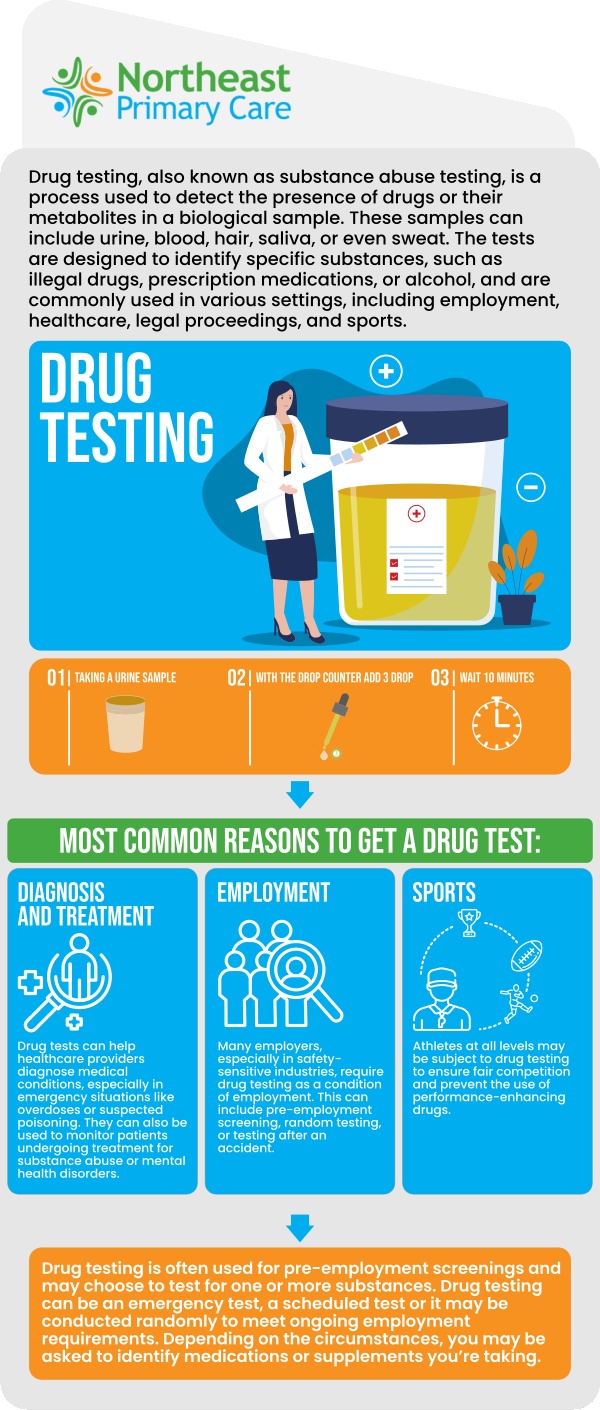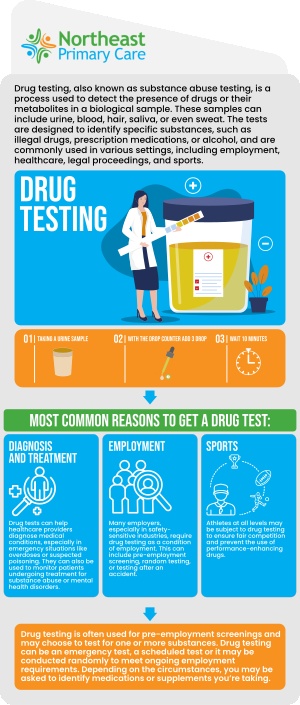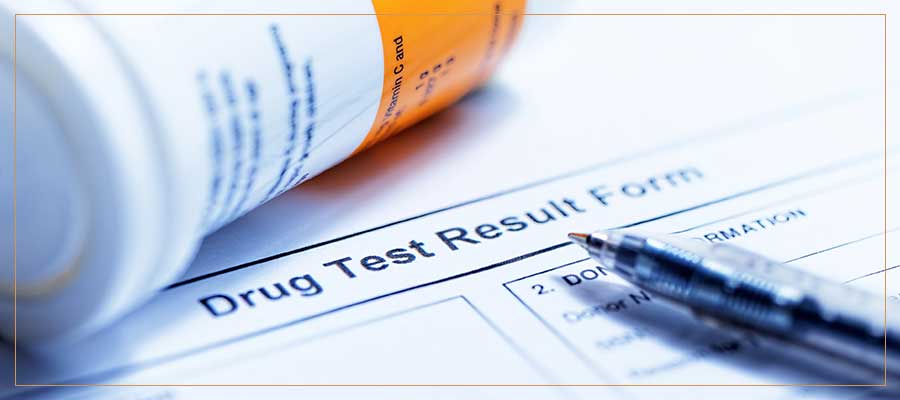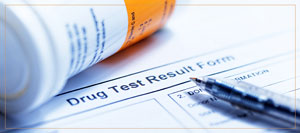Drug Testing Clinic in Melville, NY
Drug testing is widely used for diagnosing, treating, and monitoring conditions like alcohol use disorder and substance use disorder. It plays a vital role in various settings, from the workplace to healthcare services. At Northeast Primary Care, our professional medical team offers reliable drug testing to support your health and well-being, providing accurate results to help guide treatment and care. Contact us today for more information or schedule an appointment. We are conveniently located at 150 Broadhollow Rd, Suite 120-A, Melville, NY 11747.




Table of Contents:
What is drug testing?
When would I need a drug test?
What are the types of drug tests?
What will a drug test detect?
Biological samples (such as blood or urine) are used in drug tests to detect the presence or absence of drugs. Various techniques are used to order and perform drug tests in a variety of settings. Among the many possible uses for a drug test, pre-employment screening is the most common. Among the most commonly tested drugs are amphetamines, cocaine, marijuana, opioids, and PCP.
A drug can be a legal substance, such as alcohol or tobacco, as well as an over-the-counter medication, a prescription medication, or an illegal substance. Substance use disorders cannot be distinguished from casual substance use by a single drug test because it cannot determine the frequency and intensity of substance abuse.
Drugs are metabolized (broken down) at different rates by an individual’s body, so the timeframe for detecting them in your system can vary and be uniquely specific. For detecting drugs, urine drug testing (UDT) is most commonly used.
A drug test may be necessary for several reasons. Workplace drug testing is the most common use of drug testing. Employers may require a drug screening before hiring an applicant, routinely, or in response to a pattern of behavior suggestive of drug use.
Healthcare providers may test for drug use to determine the cause of symptoms or in cases of suspected poisoning or overdose.
Legal purposes may require drug testing, including collecting evidence of a crime, investigating cases of child abuse or endangerment, or determining if a driver is impaired by alcohol or other substances.
Drug testing is also commonly used for diagnosing, treating, and monitoring alcohol use disorder and substance use disorder. In addition to monitoring treatment adherence and abstinence, drug testing can also detect early relapses. This testing may be required as part of a court-ordered treatment program, probation, or a substance abuse treatment program.
A drug test may be requested if you take a prescription drug that has a high potential for addiction and misuse, such as opioids for pain.
It is common for professional athletes to be required to undergo a drug test to determine if there are any performance-enhancing drugs in their system.
Several different methods can be used to test for drugs. Point-of-care (POCT) screening devices and laboratory testing are the two most popular kinds of drug tests. With POCT devices, which are also referred to as instant drug tests, urine or oral fluid can be screened for drugs and a qualitative result can be obtained within a matter of minutes. By using specialized laboratory equipment a laboratory can confirm the drug test results. In a drug test, a biological sample, such as urine, is tested for the presence of drugs, whether legal or illegal.
These tests detect the presence of drugs in urine, whether they are prescriptions or illegal ones. Among the drugs detected in these tests are marijuana, cocaine, opiates, methamphetamine, amphetamines, PCP, benzodiazepines, barbiturates, methadone, tricyclic antidepressants, ecstasy, and oxycodone.
When a person takes a particular drug, the drug clearance rate indicates how soon they are likely to have a positive test. Furthermore, it indicates how long the person may continue to test positive after taking the drug for the last time.
Drug clearance rate varies among different types of drugs, however, in most cases, individuals can test positive up to a few hours after use and will continue to test positive for several days. A drug test will not be able to detect the amount of the drug being consumed so it will be unable to distinguish whether the use of a prescription drug is regular or if it is being misused, for example.
Drug testing is available at Northeast Primary Care. Contact us today for more information or schedule an appointment. We are conveniently located at 150 Broadhollow Rd, Suite 120-A, Melville, NY 11747. We serve patients from Melville NY, Huntington NY, Farmingdale NY, Commack NY, Deer Pack NY, and Lindenhurst NY.

Check Out Our 5 Star Reviews


Additional Services You May Need

Additional Services You May Need
- Annual Physical Exam
- CDL (Commercial Driver License)
- Acute & Chronic Illness
- Covid 19
- EKG
- Healthy Aging
- Immigration Physical Exams
- Primary Care
- Preventive Care
- Diet and Nutrition
- General Care
- Management Of Diabetes
- Medical Clearance
- Pre-Employment Physicals
- Sick Visits
- STD Testing
- Women’s Health
- Drug Testing
- Internal Medicine Doctor
- Vaccines and Flu Shots
- Allergy Testing
- Spirometry







